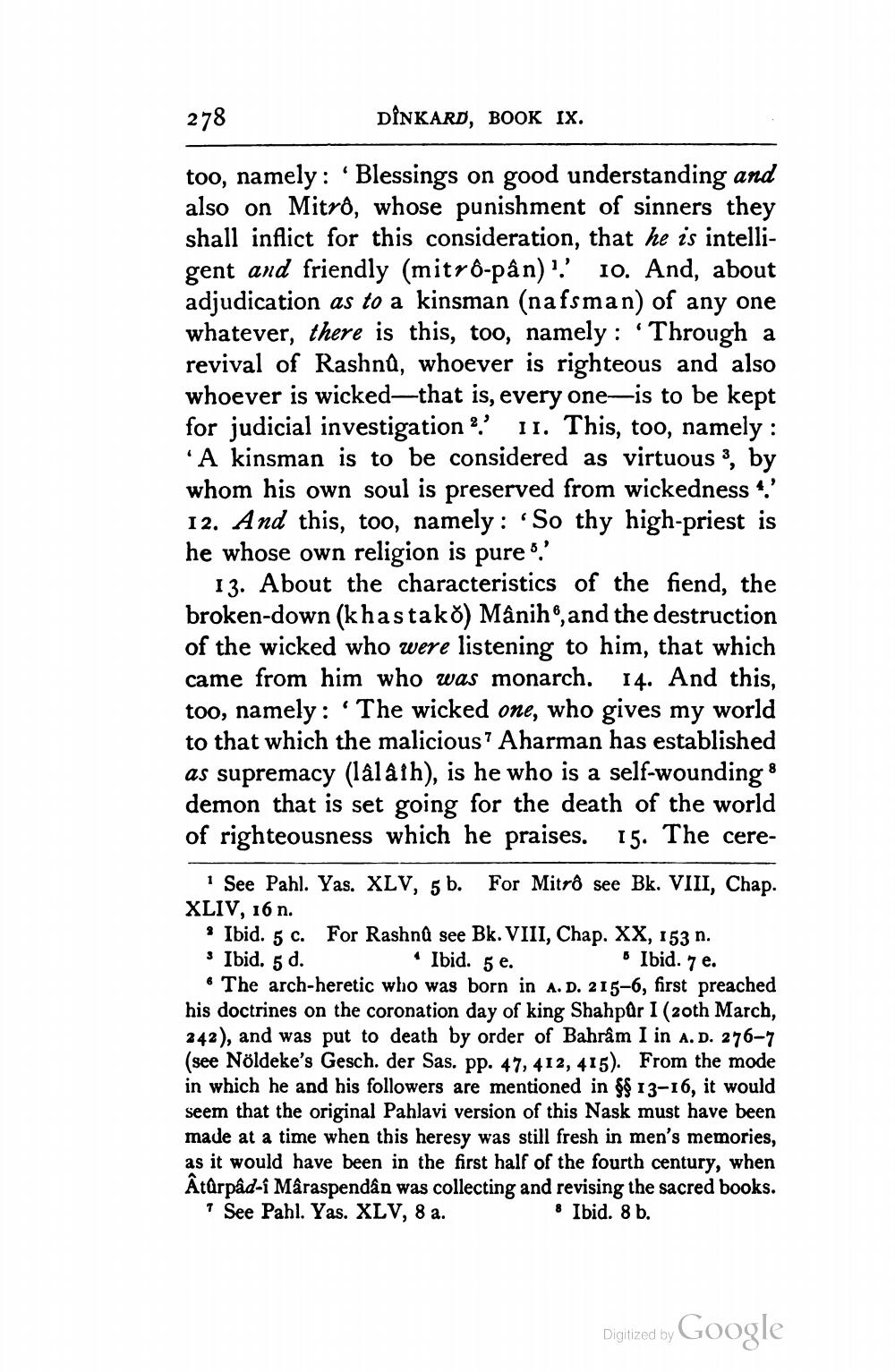________________
278
DÎNKARD, BOOK IX.
too, namely: Blessings on good understanding and also on Mitro, whose punishment of sinners they shall inflict for this consideration, that he is intelligent and friendly (mitrô-pân)? 10. And, about adjudication as to a kinsman (nafsman) of any one whatever, there is this, too, namely: 'Through a revival of Rashnû, whoever is righteous and also whoever is wicked—that is, every one-is to be kept for judicial investigation .' 11. This, too, namely: 'A kinsman is to be considered as virtuous 3, by whom his own soul is preserved from wickedness 4.' 12. And this, too, namely: 'So thy high-priest is he whose own religion is pure 5.
13. About the characteristics of the fiend, the broken-down (k hastako) Mânih , and the destruction of the wicked who were listening to him, that which came from him who was monarch. 14. And this, too, namely: 'The wicked one, who gives my world to that which the malicious? Aharman has established as supremacy (lalaih), is he who is a self-wounding 8 demon that is set going for the death of the world of righteousness which he praises. 15. The cere
" See Pahl. Yas. XLV, 5 b. For Mitrô see Bk. VIII, Chap. XLIV, 16 n.
Ibid. 5 c. For Rashnû see Bk. VIII, Chap. XX, 153 n. * Ibid. 5 d. Ibid. 5.
Ibid. 7 e. & The arch-heretic who was born in A. D. 215-6, first preached his doctrines on the coronation day of king Shahpûr I (20th March, 242), and was put to death by order of Bahram I in A. D. 276-7 (see Nöldeke's Gesch. der Sas. pp. 47, 412, 415). From the mode in which he and his followers are mentioned in $$ 13-16, it would seem that the original Pahlavi version of this Nask must have been made at a time when this heresy was still fresh in men's memories, as it would have been in the first half of the fourth century, when Atūrpad-i Mâraspendân was collecting and revising the sacred books. "See Pahl. Yas. XLV, 8 a.
8 Ibid. 8 b.
Digitized by Google




